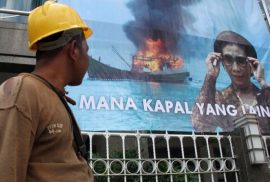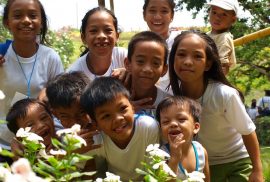Southeast Asian countries have their own capital punishment regulation, actually all of them have it until Philippines and Brunei abolished their Capital Punishment. Most of the Southeast Asian countries have the same capital punishable crime such as; drug trafficking, drug possession if considered as organized crime or exceed some quantity limit, terrorism, murder, treason, espionage, war crimes, against humanity, and also genocide. However, each county has certain differences in the regulation.
Law & Human Rights
The news of sinking foreign ships that steal fishes in Indonesian territorial waters lately has become more widespread. Almost all mass media preach about this government action. This action is not new in Indonesia, it’s just that the news has just been noticed by the media, and it is considered unusual therefore it gets attention from the public.
In this era of globalization where relations between countries become something important, especially Indonesia’s relationship with countries in ASEAN the strict action of a country to foreigners will of course affect the good relations of both countries. If we look through the case of the sinking of this foreign ships, then the Indonesian government’s actions that bombing the foreign ships without negotiate with its home country can be inferred to affect the good relations of both countries.
Think of yourself as a teenager, enthusiastic about the world. You have ambitious goals, which will help you achieve your dreams. You want to be a teacher, a lawyer, a doctor, or maybe an engineer. You see your body as a freshly bloomed flower, and enjoy immersing yourself in a romantic love story. However, life sometimes overturns all expectations. You are asked (or rather “forced”) to marry in order to improve the fate of the family. You are forced to marry in order to avoid sin. You are forced to marry by custom. You live your life as a mother, even though you’re still a child. You marry to obey your parents, and now you must obey a husband you do not recognize. Your dreams of becoming a lawyer, teacher, or doctor instantly waver.
It has become a truth that the ASEAN community consists of various cultures, ethnicities and beliefs. Understanding the ASEAN community is clearly inseparable from the differences that exist. In this case, trust that grows and develops becomes part of the community inherent in their lives.
ASEAN became a gathering area and the development of a number of beliefs through trade channels and through colonization in the past. But basically, the ASEAN community itself has existed and has developed a number of beliefs since hundreds or thousands of years before, even its existence continues to be maintained as in indigenous peoples who have faith in nature.




